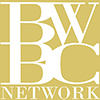By the Collections Agitator
2020 brought with him (women would not do this) the equivalent of the Plague. While there have been local and regional outbreaks with significant loss of life, no country, no person, and very few governments were prepared for the arrival of COVID-19.
The fast-moving and deadly virus made an unprecedented impact on work and socializing. Businesses of all sizes and industries moved to reduce the spread of COVID-19 by shifting to working from home, reducing their workforce, or shutting down completely. While much remained unknown, there was a belief that social distancing could slow the mounting spread. Work from home, workforce reduction, and business shuttering had the snowball effect of increasing unemployment, loss of benefits, and unstable housing.
In response to the global pandemic’s national socio-economic impact, the United States Congress drafted the Coronavirus Aid, Relief, and Economic Security (CARES) ACT, which President Trump signed into law in March 2020.
The CARES Act provisions included aid to small businesses via the Payroll Protection Program (PPP), education, and healthcare funding, allowing states to enact non-rent payment eviction moratorium and mortgage forbearance. The limited time $600 bump in unemployment benefits was welcomed relief. It expired at the end of July. Like many things, the devil is in the details. Large corporations filed for and received protections designated for small businesses. Publicly traded entities and large companies like Ruth’s Chris Steakhouse, Los Angeles Lakers, AutoNation, Shake Shack, Burning Man (yes, the party in the desert), and Yeezy (Kanye West’s Adidas fashion line) received PPP monies after filing as a small business. Let that digest for a minute.
Will/Did your small business or your small employer survive?
Truly small and minority owned businesses found they could not access the same PPP application pipelines, thus missing out on the very monies supposedly set aside for their use. The mom and pop restaurant, grocery store, deli, laundry, shoe repair owners were at an immediate disadvantage and, in some instances, suffered lasting economic loss. Take a walk through your neighborhood; see the paper-covered windows and empty storefronts of the many permanently closed small businesses. Maybe one of these businesses was your or your employer.
A few large businesses returned their PPP disbursement following public outcry with the publishing of a partial list of program recipients. It seems public shaming can still be a tool for ethical action.
So, what happens now?
Growing food lines, pending evictions, and the tidal wave of home foreclosures are inevitable without additional government action. This indecision will further impact consumers’ credit, housing, education, health, and overall wellness for years to come. Congress is at an impasse, and the President’s position changes direction with the jet stream. The election is at our doorstep. Before you pull the lever or drop your ballet in the box, think about how either officeholder might affect your today and tomorrows.
Your immediate tasks: Do your research and vote for your now and your family’s future.

